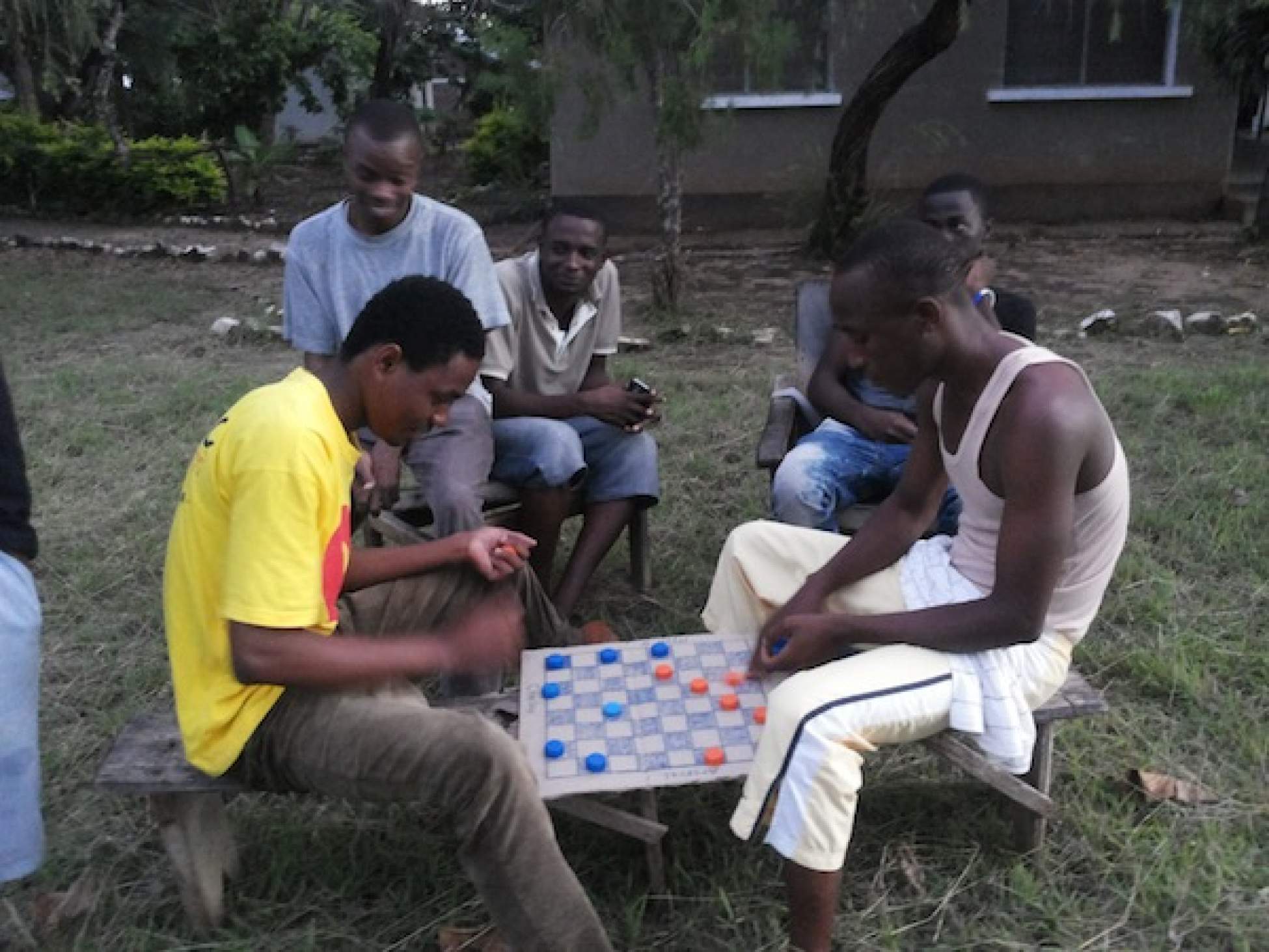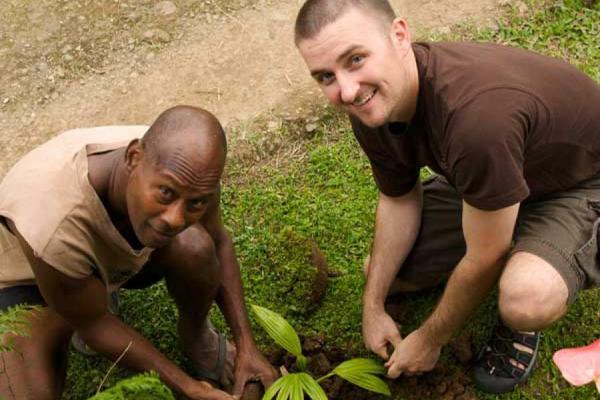Arriving home from seven-hour bus ride, I tiredly stumble into the compound that houses my volunteer organization's building and hostel. My phone is dead, but luckily I have a flashlight tucked away in my purse to navigate my way to my room.
There is no power in the entire compound—well the entire village—and this is something I have become accustomed to. Since I had been out of town and packed in a haste, my key is nowhere to be found and I am left emptying my backpack onto my steps outside my building to look for it. With my little flashlight and no power, it takes me about 20 minutes to make sure I do not leave anything outside as I hear thunder starting to roll in.
Frustrated, I finally open the door to my room and face the extreme heat of the air not aided by my ceiling fan. My only way to beat this is by having a cold shower (although there is no such thing as a hot shower here) in the dark. The power flickers on halfway through the night, enough for me to charge a little of my phone and computer. I still wake up to no power.
Blackouts are just a part of daily life in Tanzania. I actually pride myself in my ability to hold a flashlight and mirror in my hand while applying my makeup in the dark. Sometimes I know there will be a power outage as the news announces a shortage. But most times I am unaware. In the larger city centers, electricity is more efficient and regular as well as some people and businesses have generators, but at my home roughly seven kilometres from the city of Tanga, power is a flickering resource for all. Daily life goes on but anything that revolves around electricity takes a hit—including my job.
I volunteer as a multimedia innovator, meaning that I rely on my camera equipment to be charged up and ready to go, to be able to upload on my assignments without the Internet dying, and to able to edit without the battery draining on my beloved, but four-year-old MacBook.
There are some days that I just sit in my office waiting for the power to return so I can get something done. I must not be the only one waiting. All the other business people, NGOs and those who rely on power are in a standstill, making work that much harder to get done. Power has an impact on people’s professional lives here.
As a traveler, I have come up with a couple ways to make sure I am ready to work and am safe, including:
- I carry two sets of batteries for my electronics with me. I make sure both are fully charged and charge them up in order of use and importance. It’s also important to buy the extra batteries in Canada as they can be tough to get a hold of here. (I couldn’t find Canon batteries anywhere in the biggest mall in Tanzania.)
- In that light, something should always be charging. Don’t risk not plugging in your phone because you have 87 per cent battery life. That 13 per cent will become important later.
- Always carry your phone charger with you just in case.
- I carry two small flashlights with me at all times; one is a backup and one hangs on my purse. They can also be helpful when you are out and there is no power, for instance, in a restaurant bathroom.
- I leave my headlamp in my room right by my door so I can grab it when walking in. It’s also good to find the best places to mount your headlamp when having a shower, getting dressed, etc.
These are just some of the ways I prepare myself for the inevitable power outages that interrupt peoples’ lives on a daily basis.
Add this article to your reading list




